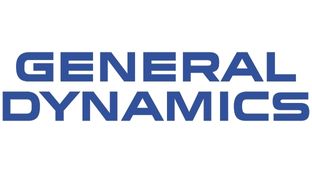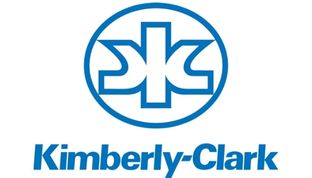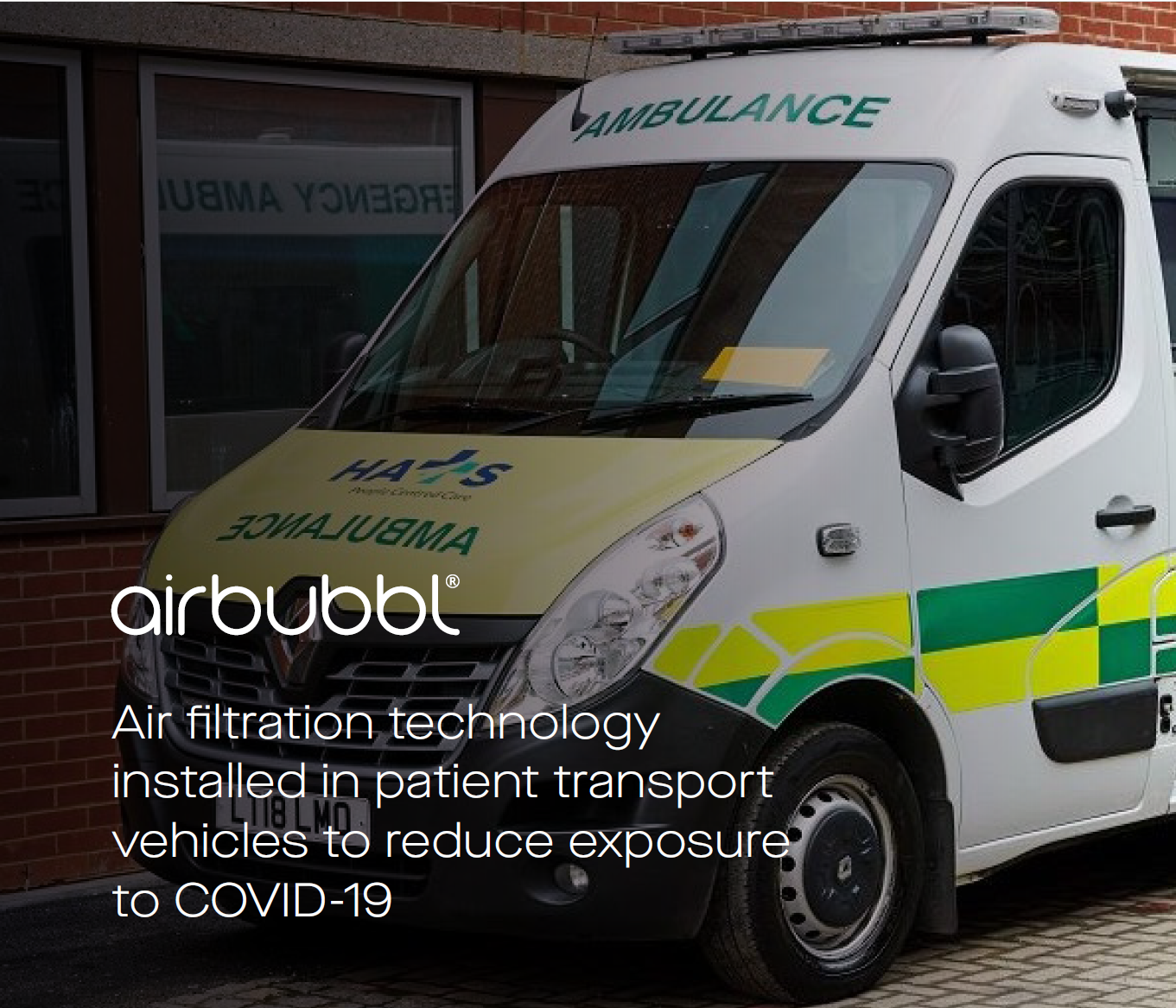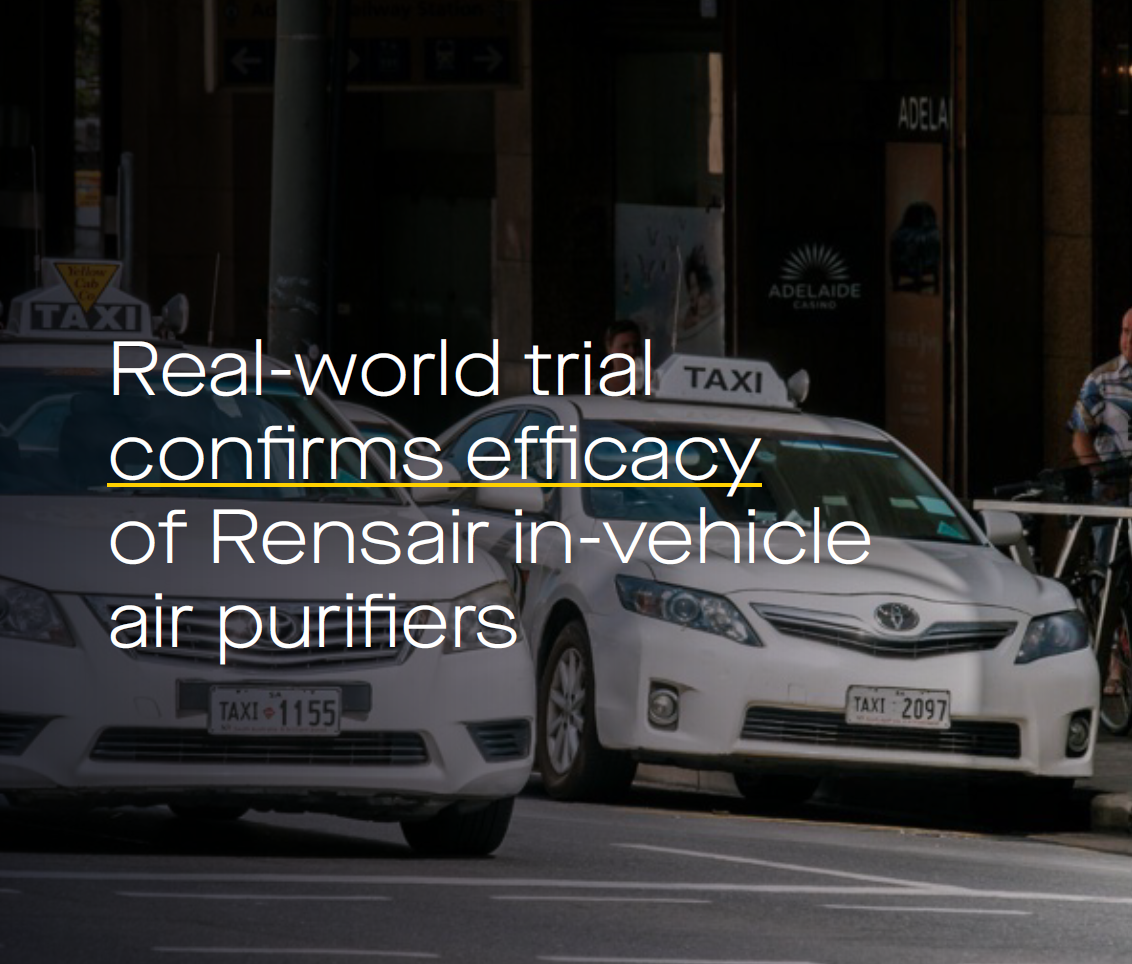Air quality poses a problem for transport providers
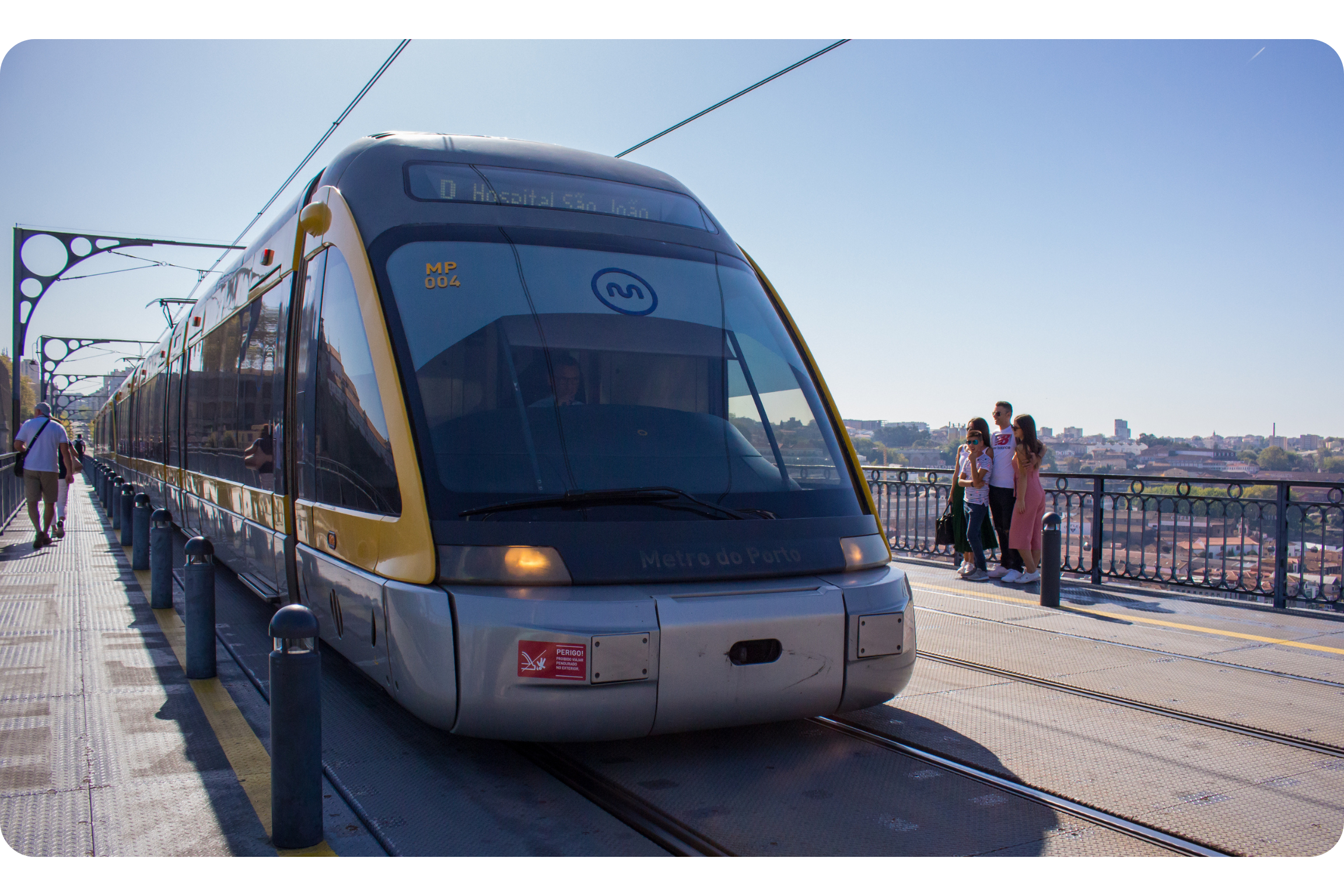
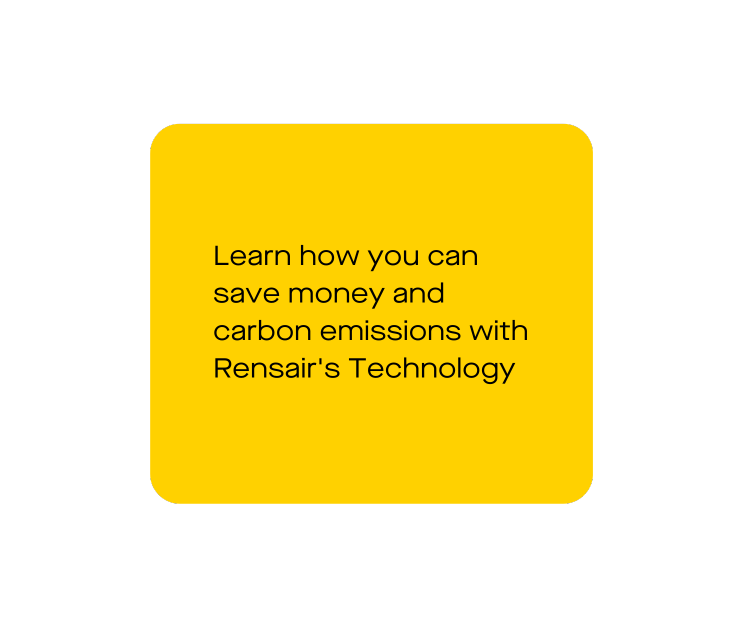
Transportation systems are integral to our society, but keeping the air clean and safe for passengers and staff during their journeys isn’t easy. Air pollution can hit dangerous levels without adequate ventilation, while airborne infections spread quickly when passengers are in close proximity – especially when windows are open and air turbulence is increased.
Transport providers need to extract the air that people exhale as close to them as possible and clean the extracted air before it is released back into the cabin. It’s a massive challenge.
Safe air for bus and rail passengers
At Rensair, we’re committed to improving indoor air quality (IAQ), reducing pollutants and safeguarding passengers and staff wherever they’re headed.
Our air quality ecosystem revolutionises air filtration by extracting and cleaning exhaled air across the entire length of every vehicle, cabin or carriage.
We remove airborne pathogens and pollutants, significantly lowering the risk of virus transmission among passengers, and ensure the delivery of thousands of cubic meters of clean air per minute, fostering a safer and healthier environment for all.
It’s a passive system that uses the momentum of the airstream from a standard ventilation system without further mechanical intervention, Our specially designed and patented diffusers use negative air pressure to create a constant cycle of clean air circulation.
We’ve created a uniquely engineered mixing chamber which pulls the air through a high-grade multi-pollutant filter and into the device, where it is mixed with the air from the ventilation system and delivered back to the cabin space. This patent-pending system – unique within the air filtration industry – is highly effective in removing and cleaning contaminated air before it can infect other passengers.
The problem of contaminated air on public transport
AirLoop is a first-of-its-kind system that extracts the potentially contaminated air exhaled by passengers and delivers thousands of cubic metres of clean air per minute. Instead of extracting air at a single point in the cabin, AirLoop extracts and cleans air over the entire length of the bus, which helps to drastically reduce the transmission risk of airborne viruses.
AirLoop not only removes airborne pathogens, but also many other harmful air pollutants and gases including PM10, PM2.5, PM1, Toluene, Xylene, other VOCs, Ozone and NO2.
Sitting along the entire length of a vehicle’s ceiling, AirLoop is a passive system that uses the momentum of the airstream from a standard ventilation system without further mechanical intervention. The specially designed and patented diffusers inside AirLoop use negative air pressure to create a constant cycle of clean air circulation.
The system uses a uniquely engineered mixing chamber, causing air to be pulled through a high-grade multi-pollutant filter and into the device. It is mixed with the air from the ventilation system and delivered back to the cabin space, preventing contaminated air from spreading across rows. This, combined with the thermal plume generated by passengers, makes AirLoop highly effective in removing aerosols exhaled by passengers.
AirLoop ensures that, no matter where in the cabin the source of bioaerosol particles is located, the contaminated air is removed and cleaned before it can infect other passengers. This patent-pending system is the only technology that can achieve this in a cost-effective way.
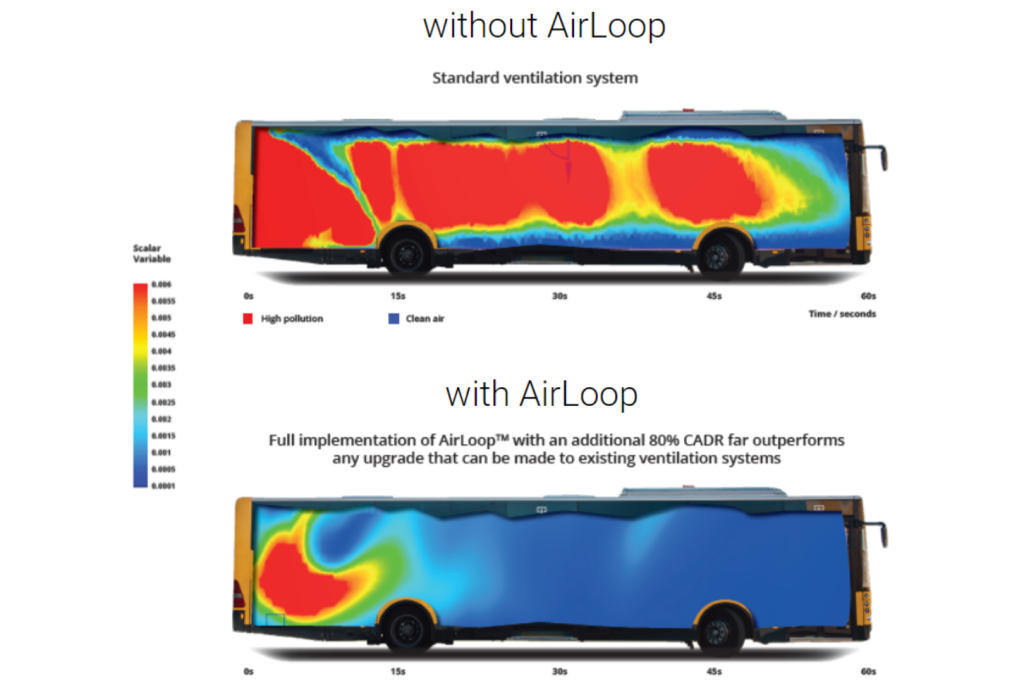

Protecting drivers and your business
Exhaust fumes and air pollution take a massive toll on the health of professional drivers. Every day they are exposed to toxic gases and microscopic particles which enter vehicles through their ventilation systems, or straight in from open windows.
These particles damage the respiratory tract lining, enter the bloodstream and make drivers more vulnerable to infection while suppressing the immune system, leading to more sick days, disrupted timetables and damage to your reputation – and your bottom line.
Our AirBubbl air purifier uses ground-breaking, triple-action technology to significantly increase in-vehicle air quality and provide a non-stop shield against particulate matter and noxious gases. Its flexible design means it can be instantly attached to and from car seat headrests or mounted in driver cabins.
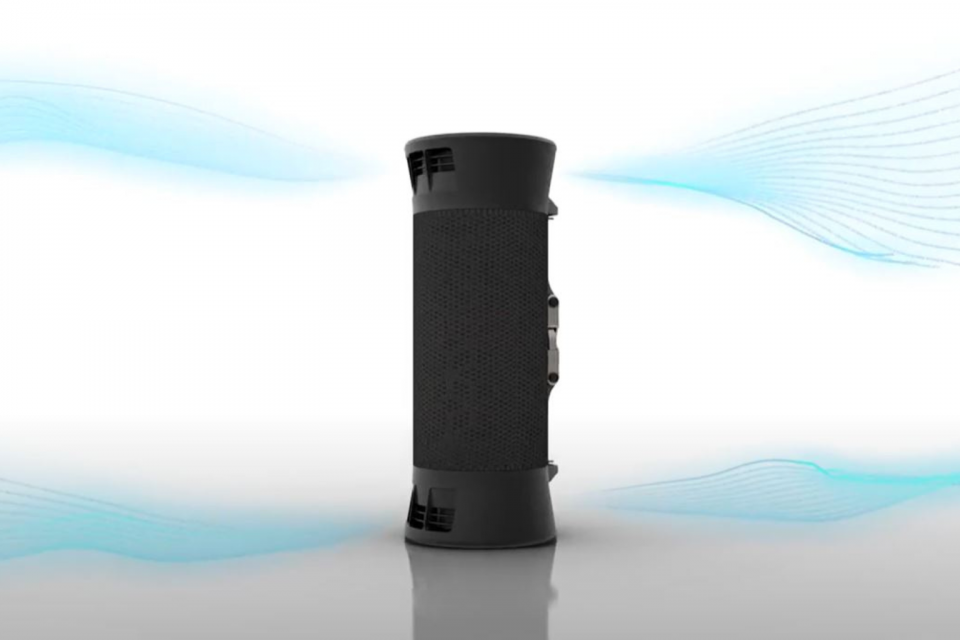
Make every journey happier and healthier
Transportation is the biggest contributor to carbon emissions on the planet. The only way we can hope to reach Net Zero is by getting more people out of their cars and onto mass transportation systems – while ensuring these systems remain as energy efficient as possible.
Our technology not only improves IAQ across transportation to protect passengers and staff, but it is proven to deliver lower emissions and reduce ventilation energy use by 40%. It’s how we make every journey happier, healthier and more sustainable.



